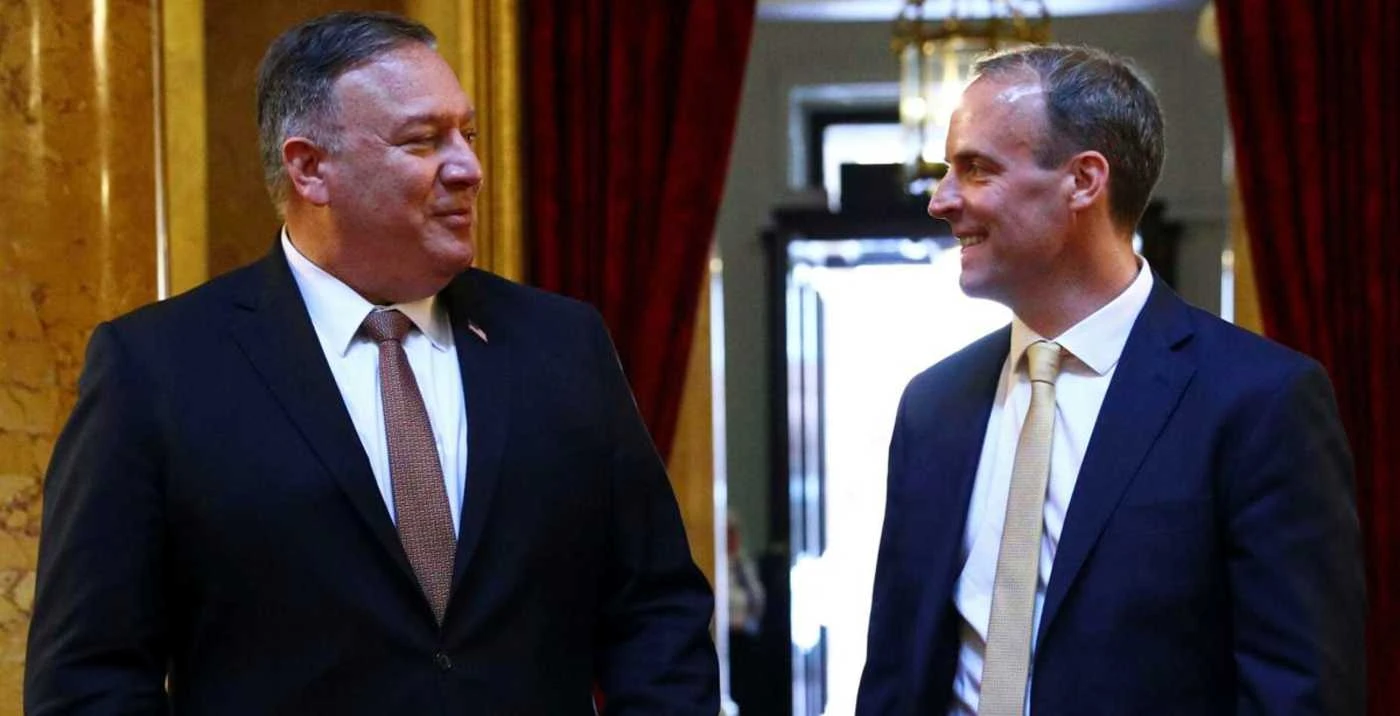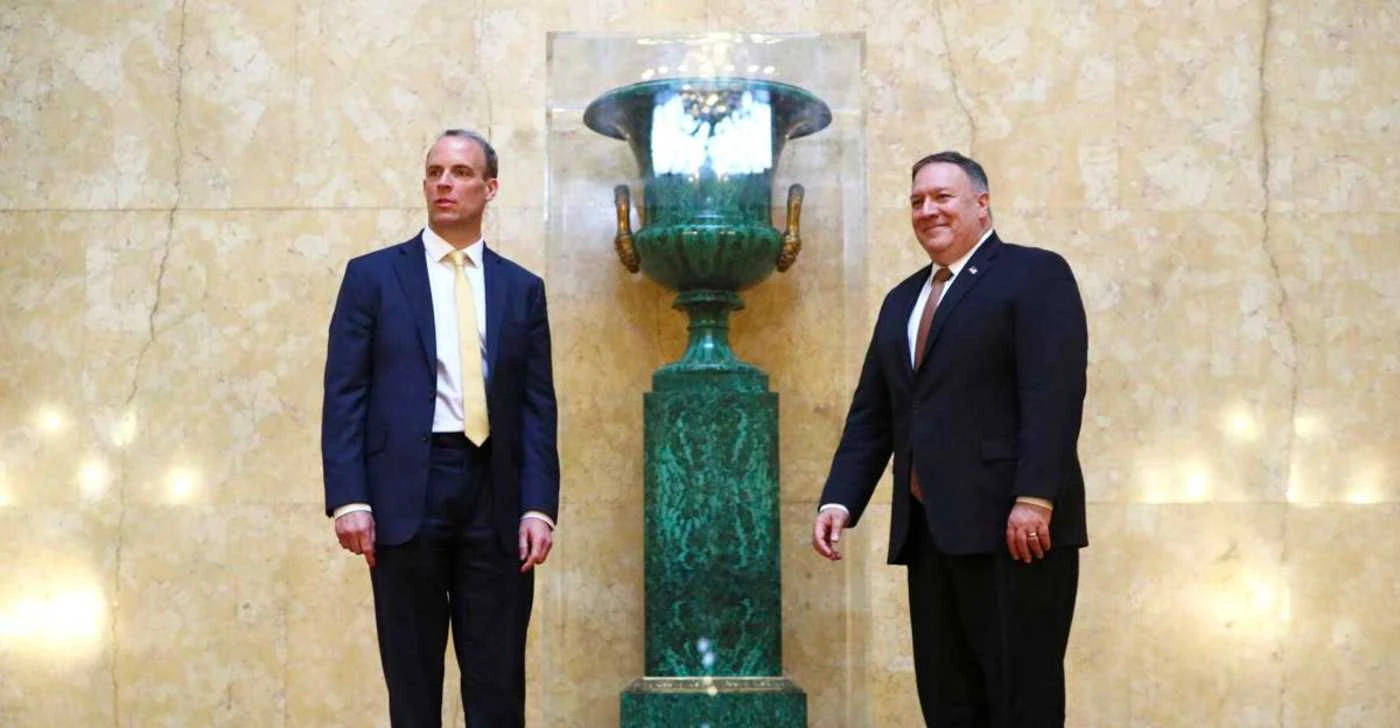The UK and the US put on a show of unity against Huawei on Tuesday, as US Secretary of State Mike Pompeo delivered stinging criticism of Beijing’s handling of the COVID-19 pandemic and urged like-minded nations to “push back” together against China’s threatening behaviour.
Pompeo, who is visiting the UK, praised the U.K.’s response to challenges raised by China as tensions continue to grow between Western powers and Beijing. Britain has in recent weeks decided to ban Huawei from the U.K.’s 5G network, suspended an extradition treaty with Hong Kong and offered refuge for millions of eligible Hong Kongers who feel threatened by Beijing’s tightening grip on the semi-autonomous city.
“We support those sovereign choices, we think ‘well done’,” Pompeo said.
Downing Street said Prime Minister Boris Johnson and Pompeo discussed “shared global security and foreign policy issues, including China’s actions in Hong Kong and Xinjiang,” where concerns have been raised about rights abuses targeting the Uighur minority.
Pompeo told reporters:
“We have seen Hong Kong’s freedoms crushed” and “watched the CCP (Chinese Communist Party) bully its neighbours.”
He also criticised the Chinese Communist Party’s “exploitation” of the pandemic as “disgraceful.”
He said the U.S. hopes like-minded nations can build a “coalition” with a joint understanding of the threat of China, including its ambitions in the South China Sea.
“We want every nation to work together to push back against the Chinese Communist Party’s efforts in every dimension that I have described,” he said.
The talks came just hours after the UK joined the U.S., Australia and Canada in suspending its extradition treaty with Hong Kong. It also blocked arms sales to the former British territory — angering Beijing — after China imposed a tough new national security law that critics say delivers a fatal blow to the liberties and rule of law promised to the city when it reverted from British to Chinese rule in 1997.
Last week the UK government drew more ire from Beijing when it completely U-turned on an earlier decision to allow Huawei a limited role in the country’s superfast 5G network. The U.S. has lobbied its allies to shun Huawei because it says the Chinese government could use the company’s technology to spy on Western nations. Huawei denies the allegations and argues that U.S. protectionism is behind the move.

A Downing Street spokesman said Johnson, Pompeo and British Foreign Secretary Dominic Raab “discussed the importance of Five Eyes countries taking an ambitious approach to working together on the technologies of the future.”
He was referring to the intelligence alliance between the U.S., U.K., Australia, Canada and New Zealand.
Asked whether the UK had been pushed by Washington into a tougher stance against Huawei, Raab said:
“I don’t think there is any question of strong-arming. Mike and I always have constructive discussions and, in the vast majority of cases, our views overlap.”
China’s ambassador to Britain, Liu Xiaoming, reiterated Tuesday that Britain’s recent moves regarding Hong Kong constituted blatant interference.
“China urges the U.K. side to immediately stop interfering in Hong Kong affairs, which are China’s internal affairs, in any form,” the Chinese embassay said in a statement. “The U.K. will bear the consequences if it insists on going down the wrong road.”
Pompeo described his talks in London as being “constructive″ and ranging “from 5G telecommunication to our negotiations for a U.S.-U.K. free trade agreement.”
Pompeo also met with senior members of Johnson’s Conservative Party who led the blockage of Huawei from Britain’s infrastructure.



